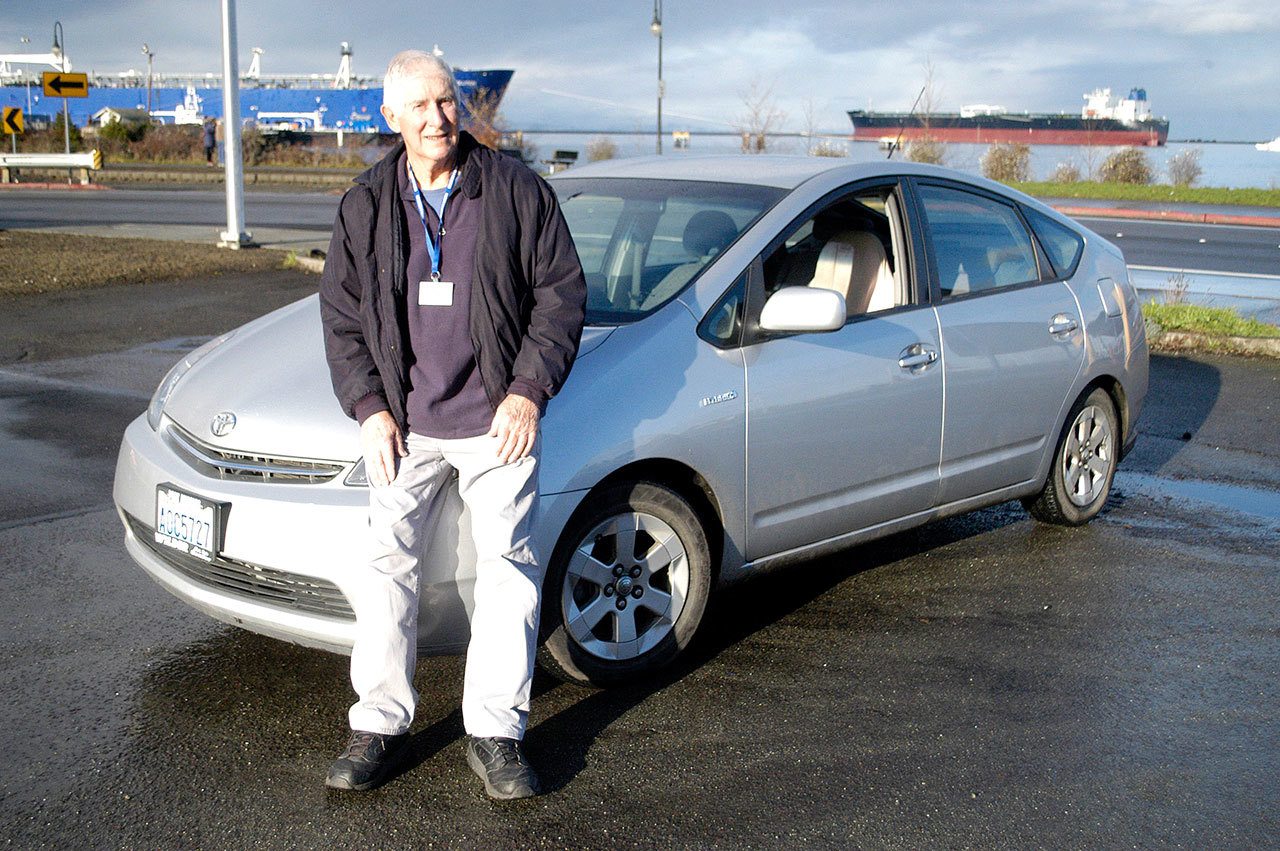PORT TOWNSEND — When North Olympic Peninsula cancer patients with no means of transportation need to travel to reach medical treatment, they can turn to local volunteers with the American Cancer Society’s Road To Recovery program.
Eighteen volunteers in Clallam and Jefferson counties donate their time and cars so patients can receive the treatments they need, according to Nina Pascoe of Port Townsend, Road To Recovery coordinator.
The volunteers provide an invaluable service, and many more are needed, “especially in the Port Angeles and Sequim area,” Pascoe said.
Pascoe’s husband, Hugh, is a volunteer driver.
“Our huge need is for people who would drive patients to Seattle, especially to Swedish [Medical Center], the Seattle Cancer Care Alliance or the University of Washington Cancer Center,” Pascoe said.
“We never had many that would.”
Pascoe said she formerly drove patients to Seattle, “but I’ve had some health issues and I can’t do those long drives anymore.
“That is happening with some of the other drivers too. They are getting older, and trying to drive over in that Seattle traffic is just really difficult, especially with all the construction that is going on down on the waterfront.”
To help transport patients in need — there are more all the time — Road To Recovery needs “some young blood,” Pascoe said, “especially people who can do that long drive” to Seattle.
At least 10 more drivers are needed, she said.
“Some of my drivers have been doing this for a long time,” Pascoe said.
“I think the cutoff age is 85 and I’ve probably got drivers getting up towards that. I could easily use 10 more drivers, especially if five of them would be willing to drive to Seattle.”
From January through October of this year, volunteer drivers gave 64 rides to Clallam County patients and 18 to Jefferson County patients, said Jerri Wood, American Cancer Society program manager for Mission Delivery for Western and Eastern Washington.
There would have been even more, but “some rides we have to decline because we don’t have a driver available,” Wood said.
“Our main customer is Olympic Medical Cancer Center [in Sequim] but they are expanding medical treatments facilities in Port Townsend too.”
In Port Angeles, David Shargel has been transporting cancer patients to appointment for the past four years. He takes them in his Toyota Prius.
He does the job because it is good karma, he said, “and is really not that hard.”
He said drivers decide whether they want to take a patient and on which days they are available.
“You can pick and choose,” Shargel said. “It works out pretty well.”
Volunteers use an app on their phones that is similar to Uber, Shargel said. All pickup and drop-off times are coordinated through the app, which includes all necessary logistical information, he added.
“People can drive as little or as much as they want,” Wood said. “So, if they are only free Thursdays mornings, then great.”
Shargel said he enjoys offering the rides and a friendly face since many of the folks he transports “just want to talk. They just want to empty themselves and tell you what it is like.
“I love people and love laughing, and giving people a laugh. I try to find humor in everything.”
Cheering people up is the best part, Shargel said.
“After seeing your 20th or 30th cancer patient, you are not intimidated by the big “C.” These are just people, and many of them are cash strapped,” he said. “This is a tremendous burden for some people who have to buy the latest medication.
“It costs thousands of dollars. You get to encourage people and provide [for] a need that is tremendous. It is very rewarding.”
That is what is in it for drivers, Pascoe said.
“It is mainly a labor of love,” she said.
“You drive patients a couple of times to these appointments and you see just how grateful they are,” she said.
”This is generally people who are single who don’t have a spouse to drive them or neighbors who can and who are used to driving themselves.
“We had one man here in Port Townsend we did a lot of rides for, and he was so heartbroken that he couldn’t just drive himself. He had always been so independent.”
Drivers are reimbursed for mileage and for fees incurred for ferry crossing and parking, Pascoe said.
“They do get reimbursed for expenses,” she said.
To volunteer, those interested must have their own safe and reliable vehicle, a good driving record, a valid driver’s license, proof of adequate automobile insurance and must complete the American Cancer Society training course for the program.
The training course includes a 15-minute, new volunteer orientation video, and a 45-minute Road to Recovery course.
Volunteers also must clear a background check.
“The background check they do is pretty extensive, as it should be,” Pascoe said. “They do a criminal check, and a drivers check and various things.”
Upon completion of the application process, volunteer drivers will begin to receive ride requests from Pascoe, and will be matched to requests based on their profile.
A driver who accepts a request is responsible for confirming with the patient one to two days prior to the ride.
Once a ride request is accepted, it is expected that the volunteer driver will carry out the ride unless an emergency arises.
To volunteer, visit http://tinyurl.com/PDN-drivervolunteers.
Cancer patients in need of a ride to treatment should call 1-800-227-2345 to be matched with a volunteer.
________
Features Editor Chris McDaniel can be reached at 360-452-2345, ext. 56650, or at cmcdaniel@peninsuladailynews.com.

